all of the selves we Have ever been
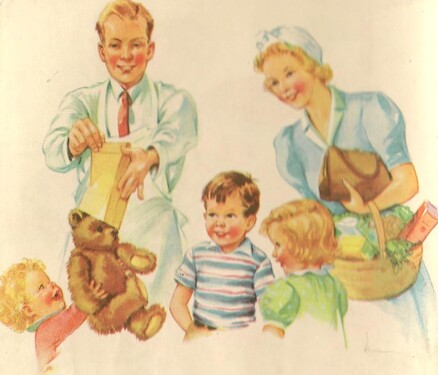 (In memory of Allison St. Claire who loved books, her library card, and bringing our words into print.) Fueled by SPAM and saltine crackers, we made our way from California to Ohio in the back of a Rambler station wagon. Our father had orders to deploy to Pakistan. Amidst the upheaval, I deployed to first grade. While my father had many years of military experience and was ready to go, I did not have the benefit of basic training—no preschool, no kindergarten. A shy and quiet child, I was not just reluctant, I was terrified, but there was no choice. And so, like my father, I donned the uniform. He marched off to Pakistan, and I marched off to Catholic grade school. Dressed in her traditional 1960s nun’s habit, the teacher was every bit as intimidating as a drill sergeant. Following orders, I sat up straight, eyes forward. We turned our attention to a large flip chart that seemed to be the height of a first-grader. Sister Eulalia turned back the cover page, and with her long pointer, she tapped the word at the bottom of the page: “Look,” she read aloud. We all repeated, “Look.” And so it began. I was officially a reader. Never again have I felt so powerful and proud. I had no idea that Dick and Jane and the Catholic school version John and Jean would soon be on their way out along with Spot and Puff. I had no reason to be aware of the debate going on in academia about methods for teaching reading: site reading versus phonics. I was too young and my world too small to be aware of the biases and stereotypes depicted on the pages filled with white faces and white picket fences. I, along with 85 million other American children, learned to read with Dick and Jane and John and Jean, Sally and Judy, Spot and Puff. Unaware of the catalog of faults, I enjoyed my school books with the watercolor art, sweet stories, and urgent action words: Look! See! Run! Come! Thomas Jefferson wrote, “I cannot live in a world without books.” And since that first day when I was ordered to look, I cannot stop looking at books. A lifelong student of human behavior, I have maintained a preschooler’s incessant need to know why. Why do people do what they do? Why do I do what I do? Inside a book I can mingle with unsavory characters and walk away with my reputation unscathed. I have the privacy to get to know myself. Without an audience and without shame, I can get down into the dark corners of my own dusty layers. I can sort out what I know, what I think, and what I might do next. Books allow me to see myself, but they don’t demand that I mount a defense. Though books now come in many forms, I still love print--the firm cover that cracks when opened for the first time. I love the smooth pages and the dog-eared ones that remind me to look again. I am awed by the power of words and the importance of order in giving meaning to language. The words liberty and death can be “Death to liberty,” or “Give me liberty or give me death.” I melt into the pictures painted by the brushes of gifted writers. I swear I have tramped through the marsh Where the Crawdads Sing. I have traveled through time with Kristin Hannah and felt the grit in my eyes blown there by the ferocious winds of the dust bowl in The Four Winds. I have wept for the curse that was slavery as I rode The Underground Railroad with Colson Whitehead. I have learned history and geography in meaningful and memorable ways not possible in the classroom. I also love the companionship that books provide. Every character becomes someone I know, a wise old friend. There are authors I trust. They give me confidence and something to look forward to. I turn to them again and again. William Zinsser wrote that writing is a public trust and that truth is a gift. He speaks of clear thinkers with a passion for their subjects and notes that how we write and how we talk is how we define ourselves. Yes! “We can write to affirm and to celebrate or we can write to debunk and destroy…nobody can make us write what we don’t want to write. We get to keep intention.” Character is revealed through writing. In this crowded world, it can be hard to find your people. I find mine in books. And I find solutions. I am better prepared for the future having walked the unfamiliar path upon a page with someone who has been there, with someone who knows. And when I am weary, and fresh out of dreams, I find something new that restores my spirit. Without books, my mind is homeless. It is Read Across America Day! Thank you, Sister Eulalia, for teaching me to read. And thank you Dick and Jane for inviting me to Look!
0 Comments
 Over the years, my children and I have enjoyed watching sports-themed movies, especially the ones where the underdogs triumph in the end. There are so many titles to choose from. Some of our favorite films include: Hoosiers, The Blind Side, Miracle, A League of Their Own, Remember the Titans, We Are Marshall, and Coach Carter. Often these stories are about a ragtag collection of players down on their luck, and sometimes they are about both a team and a coach in need of redemption. It was when we were watching McFarland, USA in 2015 that I voiced a lingering question: “What could my sport be?” Without a moment of hesitation, my son shot back, “Power of the Pen.” We had a good laugh, but that was not what I had in mind. Each time I watch one of these films, I feel inspired but regretful. I never had a sport. There was not much to offer girls of my generation. I did try field hockey briefly but that sport did not resonate with me, and I had a lot of responsibilities at home which included after-school duties caring for my younger brother and sister. For a time after high school graduation, I tried jogging for exercise. Later, I started walking which I continue to this day, but thus far, no one has tried to recruit me for an Olympic walking team. When Jane Fonda and others made work-out videos and exercise classes cool, I tried those, too, but I was doomed to failure. I spent a lot of time listening to the music and walking in place. While I enjoyed the company of my friends during those classes, the situation was a nightmare—all of that raise your right arm, lead with your left foot…the teacher facing the class instructing us, the large mirrors with the reversed images…a real house of horrors! The truth is that my gross motor coordination has been off-kilter since I was six years old. The problem began in Catholic elementary school when it was discovered I was left-handed. To save me from the fires of hell, the good sisters attempted to exorcise the devil and my leftist leanings by forcing me to be right-handed. The effort scrambled my brain. Gross motor movements no longer came naturally. I had to think about which hand to use, which foot to put down. I had to think about how to skip and walk up and down stairs. I became terribly self-conscious, fearing that a mistake would bring the ruler or rubber-tipped pointer down on me at any moment. I lost confidence in my abilities. Fortunately, we moved and I was able to use my left hand again, but by then the mental wiring was in place. My right-left disability did not make me lazy. I enjoy physical labor, especially when there is a point to it. If someone needs help raking leaves, shoveling snow, painting the house, packing and moving…I am the gal for the job. And while I am lost as a player, I do enjoy watching sporting events. Both of my children engaged in sports from preschool through high school. I rarely missed a game or event. I relish the enjoyment others get from their sports, and I enjoy spending time with my favorite fans, drinking in their company and enthusiasm as they drink in some beers. Game day snacks are not too bad either. Another deficit inhibiting a career in sports is that I have no competitive spirit. None. While I am an ardent supporter of playing by the rules in life, I am always wondering, Can’t we all just get along? I find it difficult even to compete with myself. Topping my personal best? I’ll do what I can… But all is not lost. It took the pandemic of 2020 for me to answer the question--What is my sport? During the peak of the pandemic, parents and college athletes began protesting and demanding a return to competition. To me, they seemed more worried about their careers than their lives. I just didn’t get it. But then the libraries closed and stayed closed. Month after month. Sure, they began to offer pick-up services and drive-through windows, but that just wasn’t enough for me. I needed the library to open as much as those college athletes needed to return to locker rooms and stadiums. Bring back game day! Browsing at the library brings me all the fulfillment of a sport and none of the agony. Books are shelved from left to right. The pages move from left to right. The words on a page are printed from left to right. The library is a dream world for the left-handed and right-brained. Like other sports, browsing at the library enhances memory and thinking skills, grows brain cells, and improves brain function—all without the risk of concussion or physical injury. I reach and bend and flex as I go up and down the stacks of books. Time goes by quickly and with each visit, my stamina increases and my self-esteem improves. And it is a great weight management strategy—no eating or drinking in the library. The rules of the game are clear and well-known. There are no red cards or yellow cards, just library cards. Those cards don’t get you thrown out, they invite you in, make you a member of the team. And the game ends when the library closes. There is no official referee, but a skilled librarian can take down an out-of-bounds customer with a glance or a “Shh!” A good librarian is like a great coach, she can get you down the field with a good piece of information, and she knows her stats and Dewey decimal system. Can’t find what you are looking for? So easy to punt at the library, so many other plays, so many other choices. There are even benches at the library. But unlike field sports, there is no shame in warming the bench. There is no official off-season when browsing is your sport. A book store makes a great second choice. Retail store browsing can offer some down-time conditioning. Whenever a salesperson approaches me with the question, “How can I help you?” I reply: “I am just shopping for ideas.” That gets the salespeople off my back and keeps me in top form for my return to the library. Perhaps I should have realized my athletic calling much earlier in life. I’ve learned that there may be a genetic predisposition to Olympic-level browsing. When my daughter was a toddler, she asked me one day: “Mom, can you just drop me off at K-Mart?” When I asked this smart, verbally precocious, and very independent two year old book lover what she planned to do at K-Mart all by herself, she responded, “I just want to look around.” I was raising a future first-round draft pick. 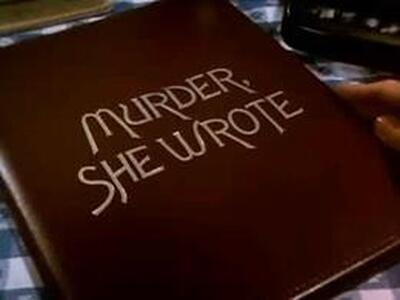 During my recent musings about Nancy Drew, I contacted several members of my unofficial Nancy Drew fan club and asked them to share their memories about our beloved teenage detective. Each woman eagerly shared still vivid memories about Nancy Drew and the entire series of books. We felt like kids again swapping tales and recreating the excitement of all that youthful sleuthing. While reading remains my favorite past time and greatest pleasure, no fictional character has ever filled the gap left when I outgrew the Nancy Drew mystery series. Pondering this I asked a fellow fan, “Who might be a new Nancy Drew for this stage of life?” My friend considered the question for several minutes and came back with, “Jessica Fletcher?” Jessica Fletcher? More pondering. Could Jessica Fletcher be a new sleuthing idol for my geriatric years? I had been a Jessica Fletcher fan and regular viewer of Murder, She Wrote. Every Sunday night for 12 years beginning in 1984, I and 30 to 40 million other people tuned in to CBS to see what Jessica Fletcher was up to that week. I did love that Jessica Fletcher was a smart, fearless, bike-riding, world-traveling, single gal. It didn’t hurt that she was a successful mystery writer and crack amateur sleuth. Just as I envied Nancy Drew and her small town, speedy blue roadster, good friends, and apparent lack of homework and curfews, I envied Jessica Fletcher’s lifestyle: retired, free of obligations, surrounded by the beauty of coastal Maine, living in a big house in the small town of Cabot Cove, a town where everybody knew her name and the sheriff stopped by for coffee, a place where a woman could safely get around town on a bicycle. Jessica sure seemed to have it all, but a substitute for Nancy Drew? It just wasn’t working for me. I guess the kid in me expects an old high school English teacher to have all of the answers. Nothing to marvel at there. The grown-up in me is not surprised when a mature, educated woman is self-assured and wise, capable of freely traveling the world as a best-selling mystery writer. And the final obstacle? Jessica Fletcher’s life was not about mystery; it was about murder. No matter where Jessica went, someone died. While I enjoy a good adventure, I am not fearless. I tend to shy away from homicides. I don’t want to risk getting into the line of fire or spending my golden years in the slammer. Who can take Nancy Drew’s place? My guess is that no one can. Some things and some people are irreplaceable. Another mystery solved. But Nancy Drew’s influence continues. She provided me with many happy memories. Memories are the currency of the geriatric years. The puzzle has become how to hang onto them. Often, we fail to value remembering until we begin to forget. I hope I never forget Nancy Drew or the names of my children or where I live. Until someone solves the really big mystery of Alzheimer’s Disease, I guess Jessica Fletcher does make a pretty good role model for growing older with grace and vigor. 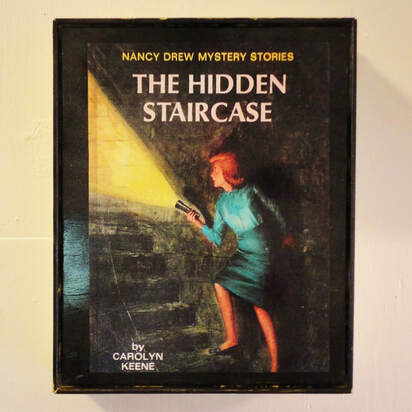 “We seldom leave places we understand.” I came across that quote during my morning time of prayer and reflection. It is from the early works of the psychologist Jordan Peterson before he fell off the deep end. Those words sink in; they explain a lot. No wonder I am a wanderer. I never know what the hell is going on. On the outside, I am a focused, tea-drinking, worker-bee. I miss the scoop to be had at the coffeemaker, the closed-door gossip sessions, and the after-work drinks at the bar. I have a quiet, orderly, and rich interior life; the outside world can be so loud, chaotic, and mean. With the added layer of social media, I sometimes feel that words have become a spray of bullets from an automatic weapon. I try not to travel extensively in that world. And so, it all remains a mystery to me. Perhaps that is why, as a school-age girl, I was so taken by Nancy Drew, and why I love her to this day. She loved a mystery, and there was nothing holding her back. In 2020, the year of the pandemic, Nancy Drew turned 90. Since the world was preoccupied with a mysterious new virus, Nancy’s birthday did not get the attention it deserved. If only someone had put Nancy Drew on the case…If only her father had won the White House, we’d know where and how this pandemic got started. For nine decades, Nancy Drew has remained a teenager. Detective work aside, one would think that many years of adolescence would exhaust anyone, even a super-sleuth. I suffered four quick years of high school. That was enough. Why anyone would do it for longer remains yet another mystery to me. I try to imagine Nancy Drew, the idol of my youth, growing older, getting old. Would she have survived to the age of 90? Survived the pandemic? Would she still be driving? If so, would she still favor a sporty blue convertible? Would she color her hair or proudly flaunt the gray? Would Bess and George still be her best friends? Would any of them be married? Divorced? Have endured breast cancer or other health crises? Would they have become parents or grandparents? Would they still be rocking sweater sets and pearls? And what of Nancy’s boyfriend, Ned Nickerson? Did he graduate from Emerson College, or did he get drafted and shipped off to Vietnam? If so, did he survive the war? Did Nancy and Ned’s relationship survive the Women’s Movement? Did they ever marry? Did Nancy’s mind remain active, clear, and clever? How did she cope with the changes of aging? Was she ever lonely or sick? Did she have regrets? What was it like for her when her father retired? After he died? Did Nancy remain faithful to the housekeeper, Hannah Gruen, as Hannah got older? What happened to River Heights, Nancy’s hometown? Would Nancy have solved mysteries at Wal-Mart? Shopped at Bed, Bath & Beyond? Would she have cursed the increasing traffic on those old, familiar streets? Did any creepy mansions remain with secrets left to expose? Did Nancy remain able to live on her own into her eighth and ninth decades of life? Or did she move into an assisted living facility or require a skilled nursing home? What mysteries might she have found in those places? Did she still find the answers to everything? It is difficult to imagine Nancy Drew grown old because I am young when I think of her. As a child, Nancy Drew allowed me to forget about my own life and enter hers. While I remember many of the book titles, I don’t remember too much about the actual mysteries. What stayed with me? Her spirit and her lifestyle. She was free to gravitate to what interested her. She was not weighed down by life and chores and homework. She was not limited by age. Adults sought her help and advice. Nancy’s lawyer- father trusted her, and Nancy was the one to look after his safety. Nancy had company in her adventures; she had resources and encouragement. Nancy Drew fed my hunger for an interesting, active life. I am not alone—Hilary Rodham Clinton and Ruth Bader Ginsburg are among the many gals who took Nancy Drew as a role model for smart women. But Nancy wasn’t just smart, she was self-assured, the quality most lacking in children, teens, and women of my generation. Nancy was free of all bondage and baggage. She didn’t just try to solve problems, she went looking for them. Try as I might to imagine it, my mind resists the image of an aging Nancy Drew. I prefer her gumshoes to my orthopedic shoes. It was never in the program for her to become more like me. The real mystery was how to become like her. She was an early female superhero. Her superpower was helping young women to believe in themselves. I really don’t want to see Nancy Drew in the nursing home—unless she is there to bust me out. We’ll go to a garden patio and eat dainty sandwiches and drink tea served from a silver tea set. We will discuss missing figureheads, missing grandsons, and missing violinists, spooky mansions, and our suspicions about the traveling circus. We will find the lost sheet music, the stolen statues, and the hidden wills. We will pour over the mysterious diaries and ominous notes. We will not be deterred by cryptic warnings of danger. We will live on—smart and self-assured with good friends, a swell car, the right clothes, and no homework. And always, always, always--we will fight for what is right. Nancy Drew can see what the world cannot. It is no mystery to her that there is still a teenage girl in me.
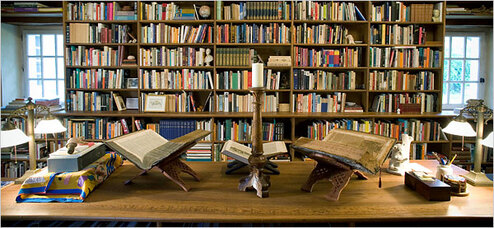 I sure do miss the library. I am grateful for the recent curb service, but it is just not the same. There is no other setting that can compare with the atmosphere of a great library: quiet, gentle, respectful, happy. Great minds and voices whisper from the shelves. I feel a sense of reverence and pride to be among them. The library is there for every one of every interest and need. Public libraries are taxpayer supported and THE best example of redistribution of wealth. Who can complain about supporting a library? Libraries put the free in freedom. The services are entirely voluntary, and the books and materials can be borrowed at no charge. There is no better deal anywhere, especially during an economic downturn. Thomas Jefferson said, “I cannot live in a world without books.” Well, neither can I. Thankfully, during this long period of library closings, I have friends who have shared Kindles and mailed novels to me. My daughter grew into a book-lover too, and we’ve made some in-person trades. There are books in each room of my house and a few in my car. Often, if there is room, I can place something to read in my purse. While I was growing up, books lined the shelves of our dining room at home. Magazines covered the coffee table. My parents did not have time to spend hours stretched out on the couch reading, but somehow books mysteriously appeared on those shelves and magazines piled up on the tables. That area of our home became my first small library. I picked up and read books my parents were enjoying like Fail Safe about a Cold War nuclear crisis and Rebecca, a Gothic novel by Daphne Du Maurier. There were Reader’s Digest Condensed Books—a real bargain, several books in one. My mom’s heavy medical dictionary and books about microscopic organisms lay on their sides on the bottom shelves. My dad was a wonderful amateur photographer and loved National Geographic. Copies were scattered in our little library and all around the house. One never threw away a National Geographic. Ever! Each copy was like owning the original, Pulitzer prize-winning photographs. It was in passing from our kitchen to the dining room that I first heard gathered books silently whisper to me. They could not be ignored. No matter how many times I scanned or dusted the shelves, I was never bored. I could always find something new and interesting. I have a vivid memory of learning to read thanks to Dick and Jane, their little sister, Sally, and pets, Spot and Puff. Dr. Seuss made reading fun with silly, catchy rhymes and memorable imaginary characters. But it was Nancy Drew that made me and AVID reader. I spent a lot of lazy hours lying on my belly, nosed pressed to the pages sounding out new words like c-o-l-o-n-e-l. I craved each installment in the series. Nancy Drew and her friends, Bess and George, lived lives far removed from the mundane lives of Dick and Jane. Those amateur sleuths were smart and independent, not burdened by the normal dreary demands of my own school-age life. They faced fear and solved mysteries. They were average and yet heroic. I longed to live the Nancy Drew life or at least become her friend. Nancy Drew got girls reading and dreaming, a pretty heroic act in itself given the times. I don’t remember when I first entered a library. I do recall stepping aboard a book mobile in early grade school. It was the original Magic School Bus. It might also explain why I always keep books and magazines in my car. After the Book Mobile, that’s just how we roll. In the small village that was home to my grandparents and where we sometimes lived when my father was deployed on military duty, there was a tiny library, just a little bud by today’s standards. On the basement floor below was the village jail which my sister, my cousin and I explored during a trip to the library. We hesitantly walked down the concrete stairs and peeked in. There was no one in the jail and the door was open. We stepped inside for a better look. As I recall, there were two adjacent cells with iron bars. One cell had mattresses propped up on their sides--must have been the padded cell. Creepy. We didn’t stay long, and we didn’t go back. However, it did turn out to be more memorable than the library. In retrospect, it does seem handy to keep jail and rehab in the same location. Growing up, we stuck primarily with the school library as we lived in the suburbs and chauffeur services were limited. It wasn’t until college and graduate school that I had easy access to great libraries. By then community libraries were in full bloom. Today I live in an urban area with amazing libraries in every community. Public libraries contain so much more than books! Collections include films and music, computer access, digital services, newspapers, magazines, research assistance, help with your tax returns, classes, entertainment, daily programs for children of all ages, helps for senior citizens…And good libraries just keep reinventing themselves. Past, present, and future here unite. No matter how many times a week that I visit a library, the books still whisper to me. All the great minds that ever lived are immortalized somewhere there on a shelf waiting to be rediscovered. In this contentious time, libraries remain the great equalizer. Your freedom ticket is inside. Our public libraries are our monuments to the power of free speech and public education. May they stand the test of time and serve as a reminder that words do matter. 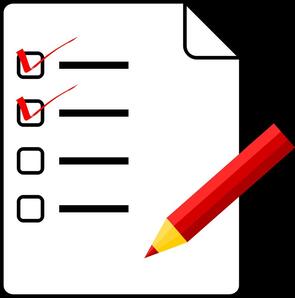 I have come to understand binge watching. It feels good to get caught up on something. Life is a perpetual game of catching up…housework, homework, emails, bills, laundry. No matter how much attention we give to things, there is never enough time or energy to get caught up and stay that way. It is much more fun to crash on the sectional and watch all of the episodes of Mad Men or Grace and Frankie. Ah, to be caught-up on something—that fleeting sense of accomplishment. Better yet to be caught up and have it take nothing out of you. That’s like winning the daily double without buying a ticket! Most of our demands come from the necessities of life. If you don’t pay the rent or mortgage, sooner or later, you will get kicked out of your house. At some point recycling dirty clothes will not pass the sniff test in polite society. Parent-teacher conferences can be time-consuming and discouraging, might as well get that homework completed. A child’s future is a terrible thing to waste. But some to-do lists are entirely self-imposed. For me, the problem presents itself in the various forms of the printed word. I love books, magazines and newspapers. Not counting the books sitting neatly on their shelves, I have books and magazines in every room of my house. In my kitchen there are cookbooks on the counter as well as recipes torn from the newspaper that are held to my freezer door by magnets shaped like fruits. There are books on the table next to the front door to remind me to go to the library and to always have a book with me wherever I go. There are books on the coffee table and on the end table in the living room. In my study, there are books on the desk. Small piles of books are neatly organized on the floor according to their potential usefulness. In my bedroom, there is the novel I keep at my bedside, and the one in the basket of my recumbent exercise bike. Often, there are magazines in the bathroom. If not, I just read the bottom of the tissue box or the label on the shampoo bottle. I try to understand “the science of healthy hair.” (And what is stearamidopropyl dimethylamine?) Why waste time when you can read? That leaves the mobile units. I have to carry a purse with a large enough pocket to hold a book or folded-up magazine. I am a mother. I have spent a lot of my adult years waiting. Mother’s invented the motto, “Be prepared.” The Boy Scouts only borrowed it—from someone’s mother. I also keep reading material in my car in case I finish the book or magazine that is in my purse. From time to time, I wipe the slate clean. I finish every book and article that I started. I then swear on my honor that I will not get involved in more than one book at a time. But it doesn’t last. I have no honor. For me, saying no to a book, is like turning down a great conversation. If you had the chance to meet the people in the books or the ones who wrote them, would you turn it down? Could you? I am terminally curious. I will go to my death asking, "Why?" Books give me new ideas, revelations even. The words in books force me to re-think my old ideas. Books introduce me to new people and experiences I could not otherwise know. Stories offer a chance to feel deeply and to be surprised. From a book I can hold greatness in my hands and feel the call to action. When I am engaging with a writer, I do not have to yell to get a word in edgewise. I hear every word the author says and, in my mind, the author listens to me. When rebuttal is necessary, the author does it firmly but politely. Books balance my view and inform my opinions. Reading widely, I come to see the big picture. From David McCullough and his beautiful books on American history, I feel pride in my citizenship. I read Colson Whitehead and I have a deeper understanding of the unspeakable horrors of slavery. I realize I cannot be an educated citizen without appreciating both stories, both points of view. Both happened. Both are true. I read Where the Crawdad’s Sing, and I am transported to a marsh I likely never will see with my physical eyes. I am mesmerized by the sounds and beauty of that natural world. I can see it all clearly in my mind’s eye; I can hear the crawdad’s sing through the wonder and beauty of the written word. And I wonder how long the beauty of the natural world will be with us. Right now, included in my scattered piles of books, I have professional continuing education materials on mass shooters and murderers, a book on marital therapy, a memoir, another Colson Whitehead book, a book on women writers, and a long text on healthy aging. I hope I live long enough to finish it....Gosh, I have a lot to do today! But first, I think I will call a friend. We have a lot of catching up to do. |
AuthorLilli-ann Buffin Archives
July 2024
Categories
All
|
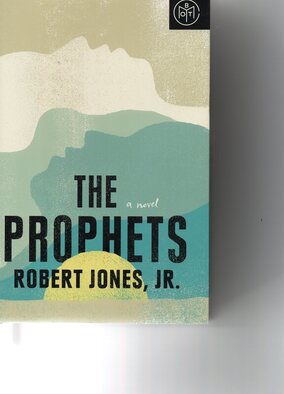
 RSS Feed
RSS Feed